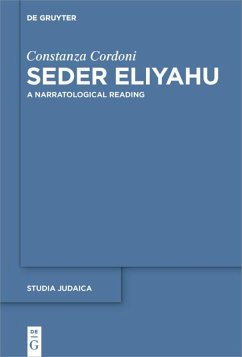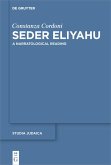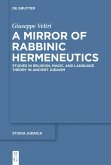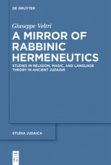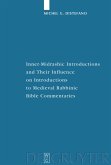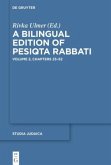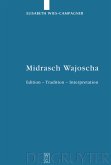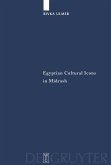The book is concerned with a so called ethical midrash, Seder Eliyahu (also known as Tanna debe Eliyahu), a post-talmudic work probably composed in the ninth century. It provides a survey of the research on this late midrash followed by five studies of different aspects related to what is designated as the work's narratology. These include a discussion of the problem of the apparent pseudo-epigraphy of the work and of the multiple voices of the text; a description of the various narrative types which the work, itself as a whole of non-narrative character, makes use of; a detailed treatment of Seder Eliyahu's parables and most characteristic first person narratives (an extremely unusual form of narrative discourse in rabbinic literature); as well as a final chapter dedicated to selected women stories in this late midrash. As it emerges from the survey in chapter 1 such a narratologically informed study of Seder Eliyahu represents a new approach in the research on a work that is clearly the product of a time of transition in Jewish literature.
Bitte wählen Sie Ihr Anliegen aus.
Rechnungen
Retourenschein anfordern
Bestellstatus
Storno

